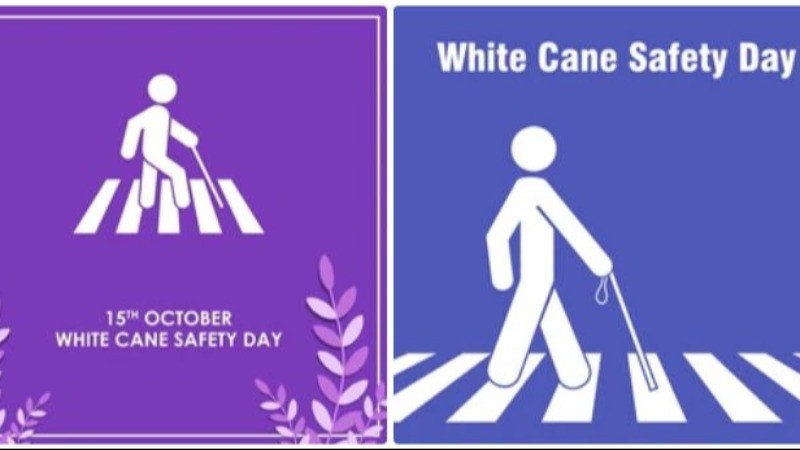
World White Cane Day, observed every year on October 15th, serves as a reminder of the importance of promoting awareness and understanding around blindness and visual impairments. This day highlights the significance of the white cane as a tool for independence and mobility for individuals who are blind or visually impaired. It also emphasizes the need for society to adopt courteous behaviors and practices to create a more inclusive environment.
Understanding the White Cane
The white cane is more than just a mobility tool; it symbolizes independence, self-reliance, and the ability to navigate the world confidently. For many, it is a critical aid that allows individuals to detect obstacles and navigate their surroundings safely. Recognizing the meaning of the white cane is essential in fostering respect and support for those who use it.
Courtesy Rules When Interacting with Blind Individuals
As we observe World White Cane Day, it’s crucial to learn and practice proper etiquette when interacting with blind individuals. Here are some courtesy rules to keep in mind:
1. Speak Directly to the Person
When you encounter a blind person, address them directly rather than speaking through a companion or caregiver. This shows respect and acknowledges their presence. Use clear, natural language, and introduce yourself if necessary.
2. Offer Assistance, but Wait for Permission
If you feel compelled to offer help, always ask first. Many individuals who are blind prefer to navigate independently, and unsolicited help can be disorienting. Phrase your offer clearly, such as, “Would you like assistance?” If they decline, respect their decision.
3. Use Descriptive Language
When giving directions or describing surroundings, be specific. Instead of saying, “It’s over there,” provide clear descriptions. For example, say, “The bench is to your right, about three steps ahead.” This helps blind individuals orient themselves more effectively.
4. Guide, Don’t Push
If someone accepts your assistance, offer your arm for guidance instead of pushing or pulling them. Let them take your arm and walk at their own pace. This method helps maintain their independence while providing support.
5. Respect Personal Space
Just like anyone else, blind individuals have personal space boundaries. Avoid standing too close or touching them without consent. Always respect their need for space and comfort.
6. Avoid Relying on Visual Cues
When conversing with someone who is blind, don’t use visual cues to describe things or gestures. Instead, rely on verbal communication. For example, instead of pointing, describe the location or the actions you’re discussing.
7. Be Mindful of Your Surroundings
If you’re in a crowded or busy environment, be aware of your surroundings. Avoid creating unnecessary obstacles or distractions that could hinder someone’s movement. This awareness contributes to a more accessible and welcoming atmosphere.
8. Encourage Independence
Support the independence of blind individuals by encouraging their self-sufficiency. Allow them to make their own decisions about mobility and interactions, which fosters confidence and self-reliance.
Promoting Accessibility and Inclusion
World White Cane Day is not only about awareness; it’s a call to action for everyone. Advocating for accessible spaces, technology, and resources is vital in ensuring blind and visually impaired individuals can navigate their environments comfortably.
Support Local Initiatives: Get involved in local organizations that promote accessibility and advocate for the rights of individuals with disabilities. Your participation can make a difference.
Educate Yourself and Others: Take the time to learn more about blindness and visual impairments. Share your knowledge with friends and family to promote understanding and support.
Create Accessible Environments: Whether at home, work, or in public spaces, ensure your environment is accessible. Simple changes, like clear pathways and audible signals, can significantly enhance mobility for blind individuals.
As we commemorate World White Cane Day 2024, let us commit to practicing courtesy, respect, and inclusion in our interactions with blind individuals. By understanding and implementing these courtesy rules, we can foster an environment that promotes independence and dignity for everyone, regardless of their abilities. Let’s work together to make the world a more inclusive place, where everyone can thrive.